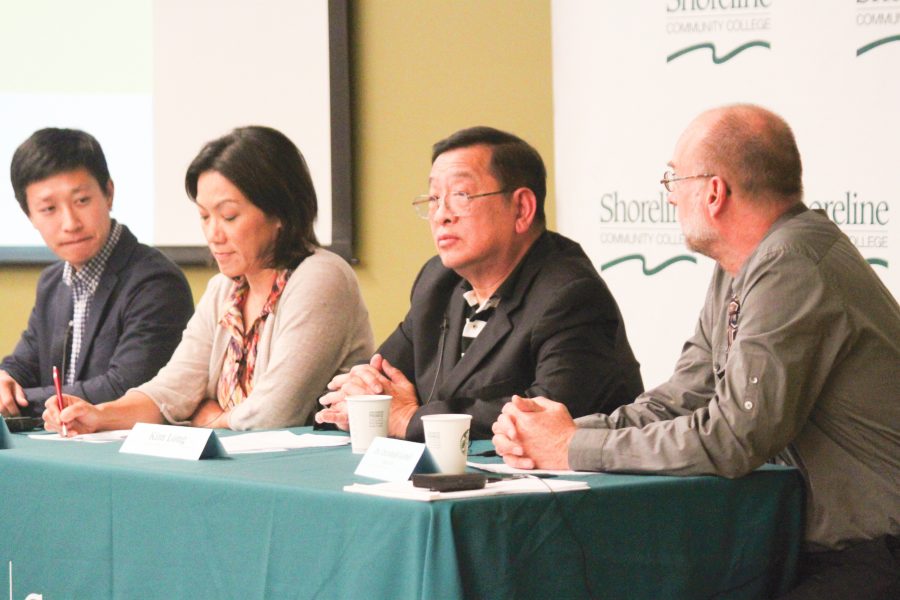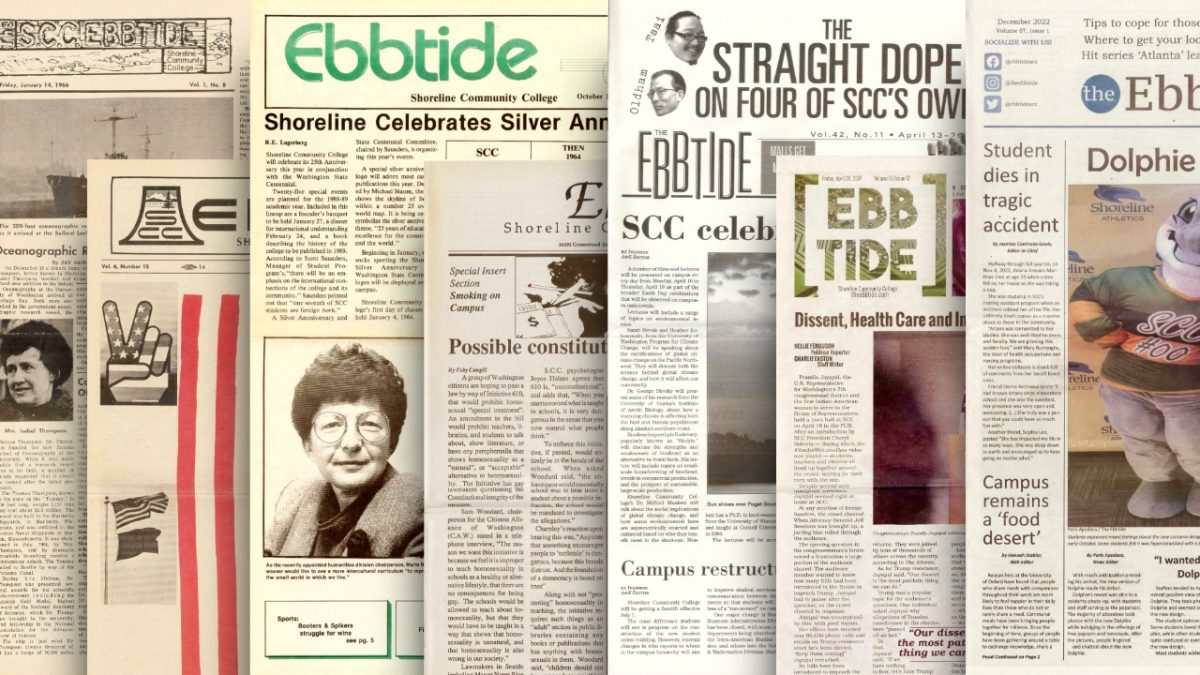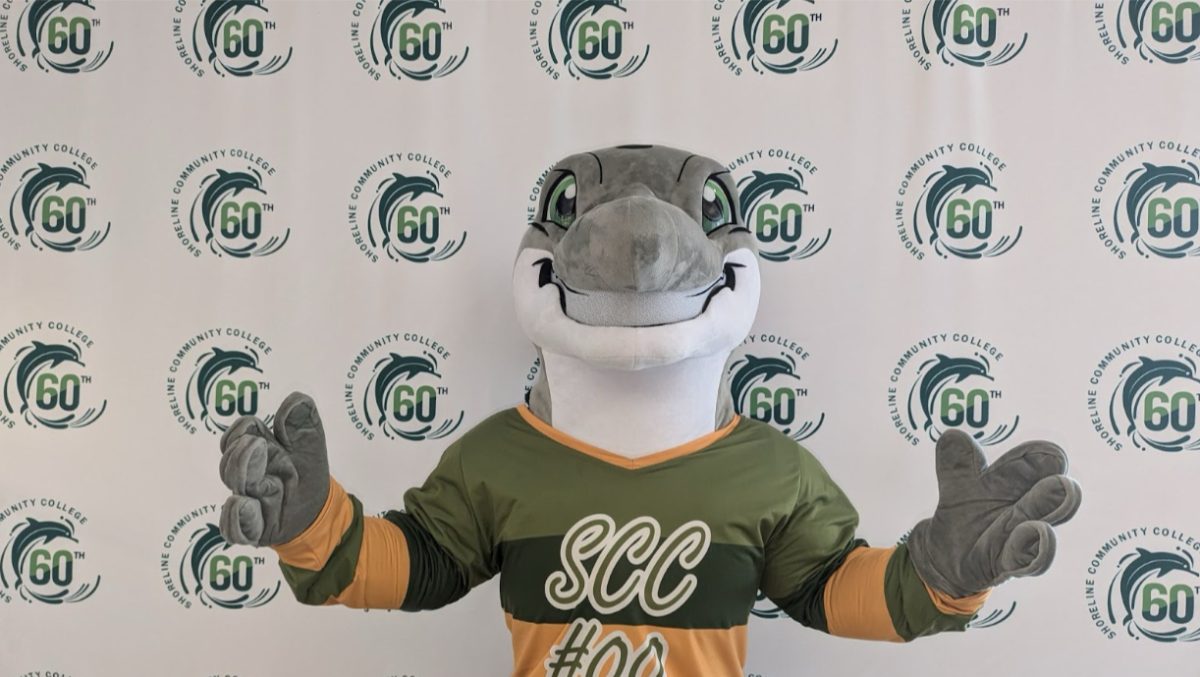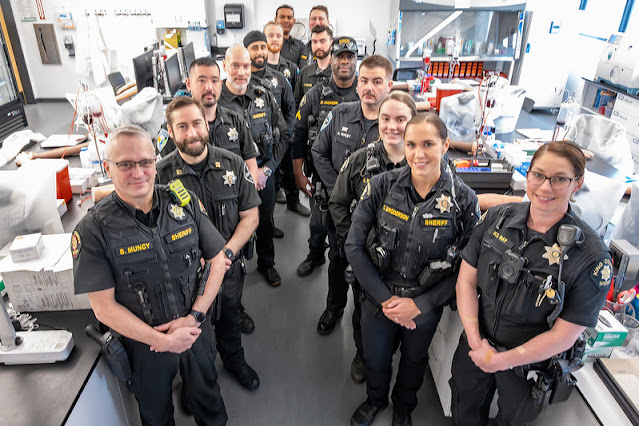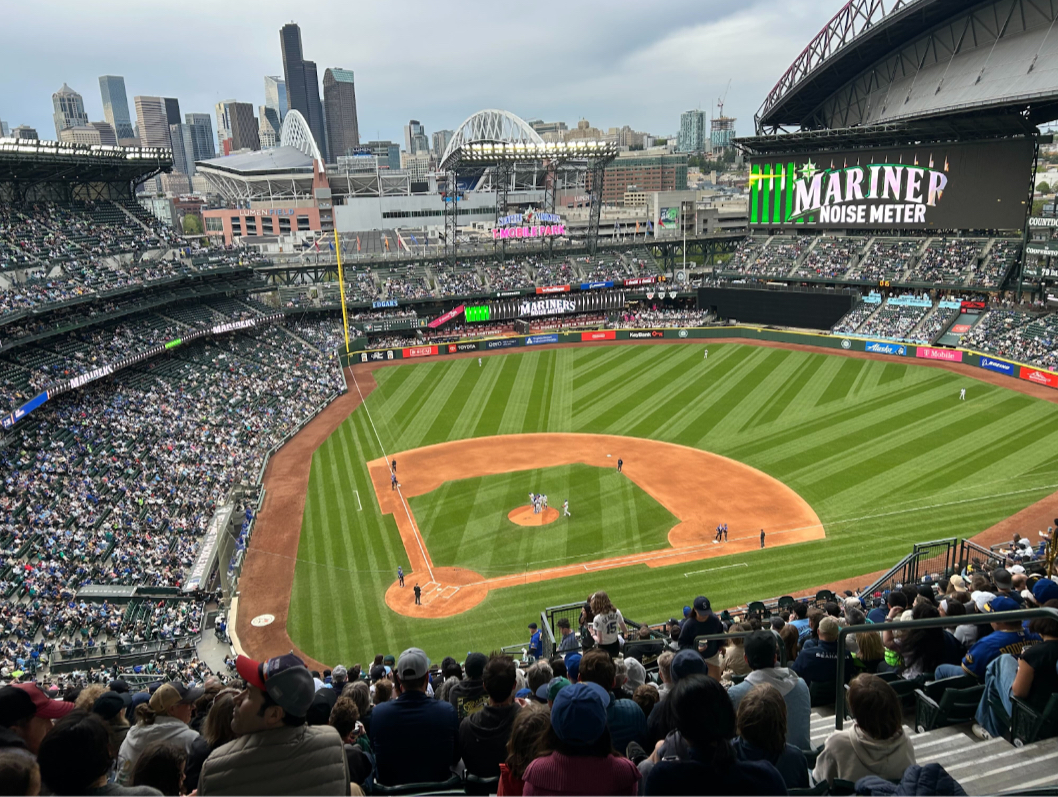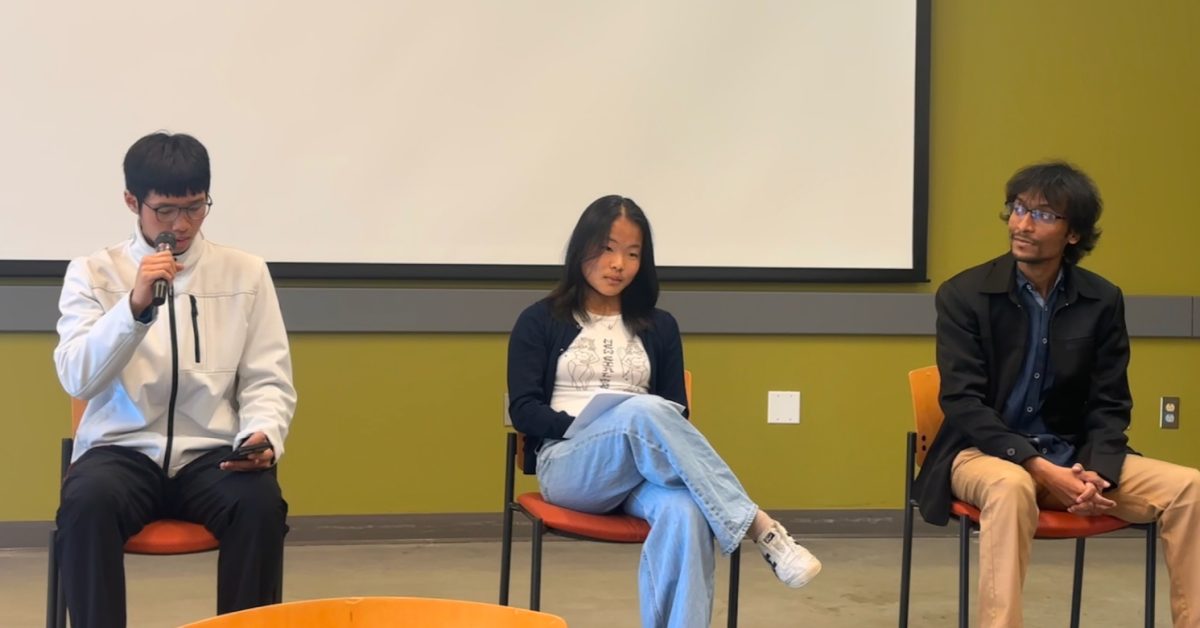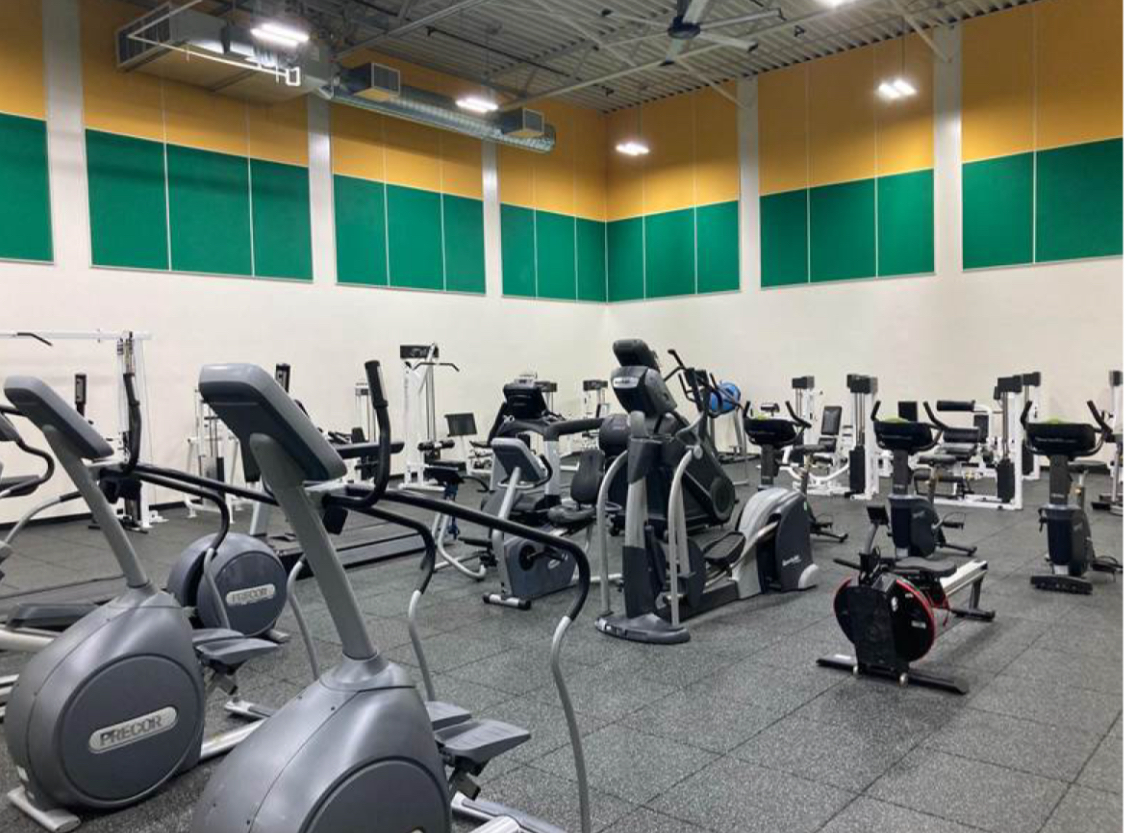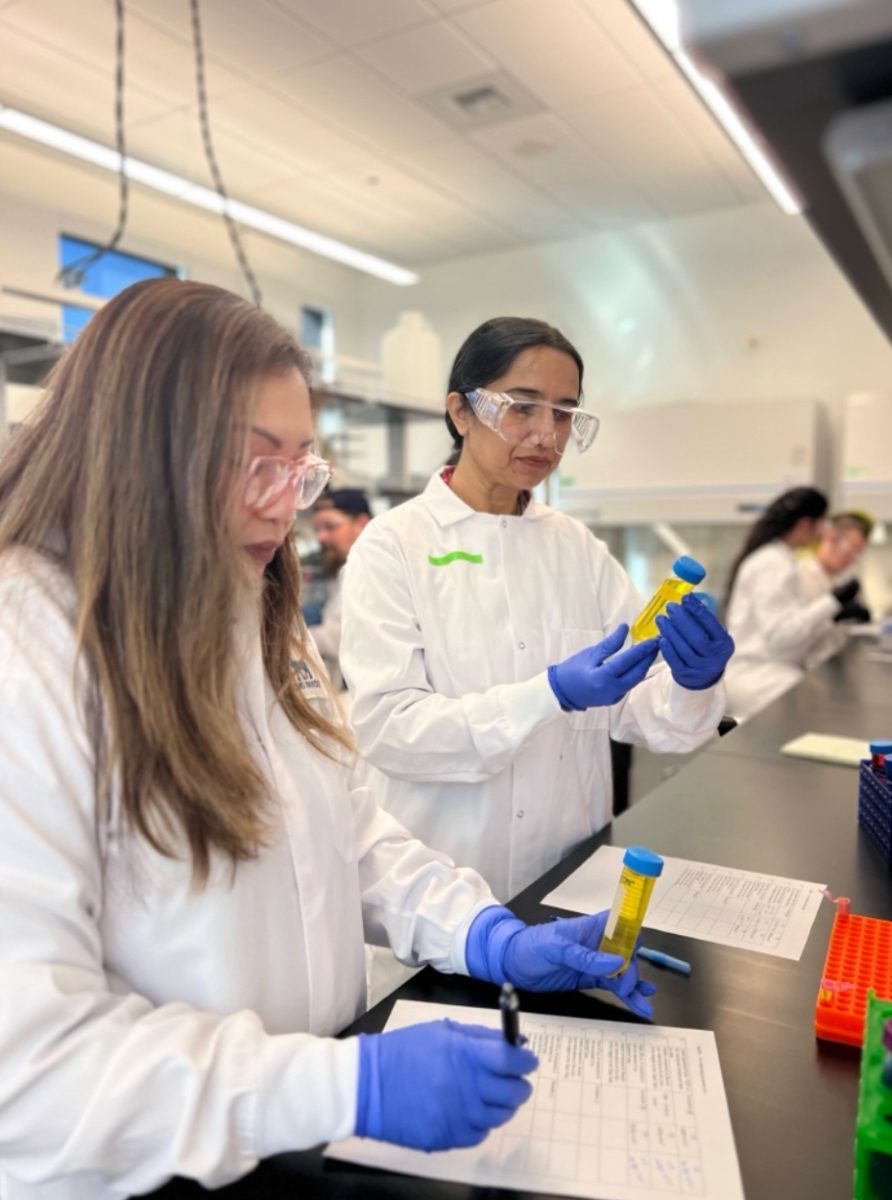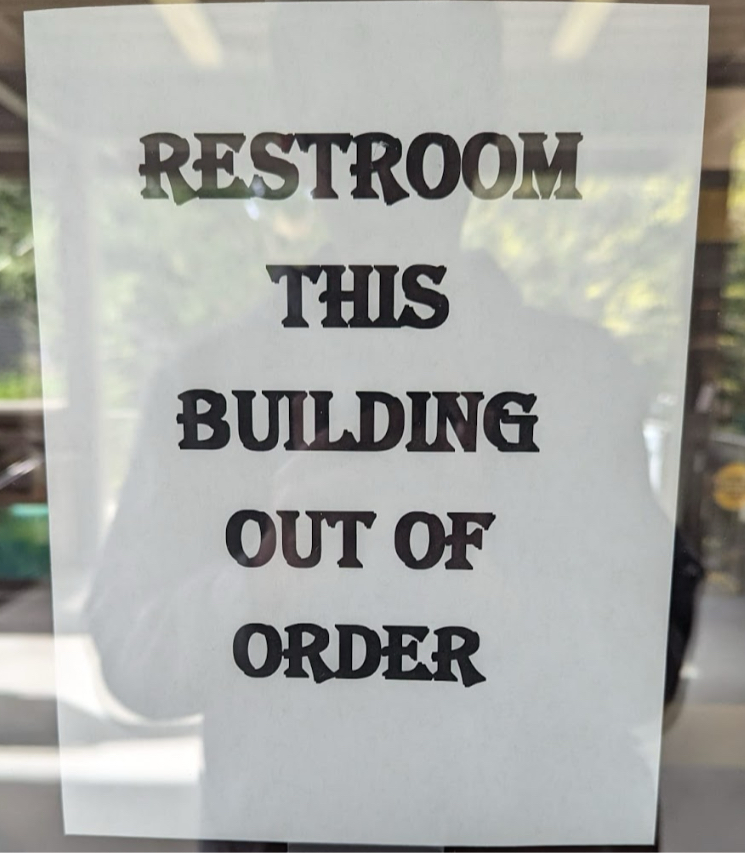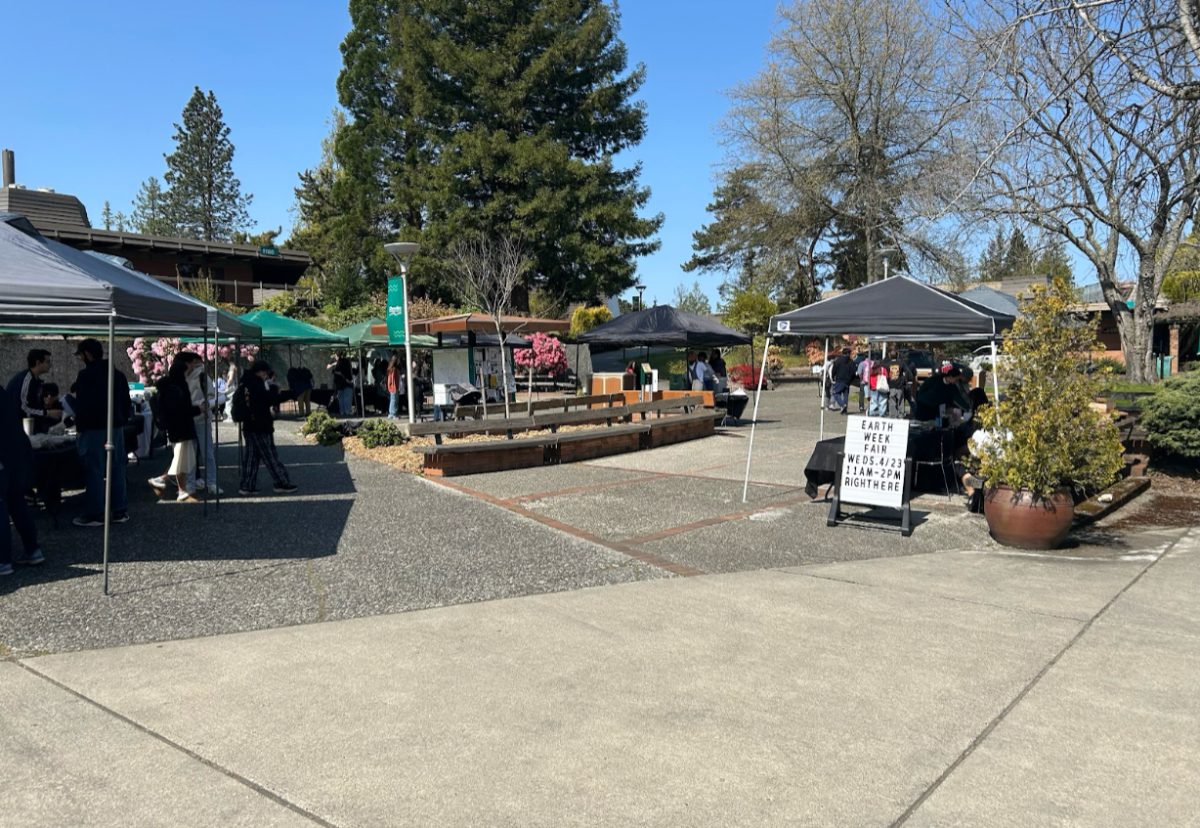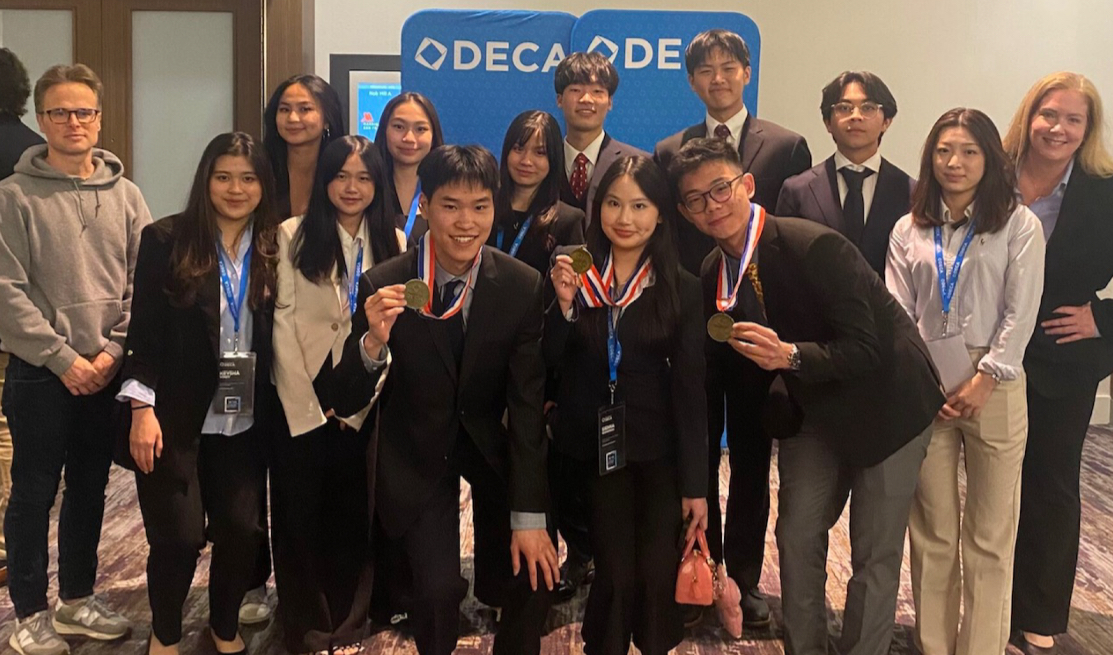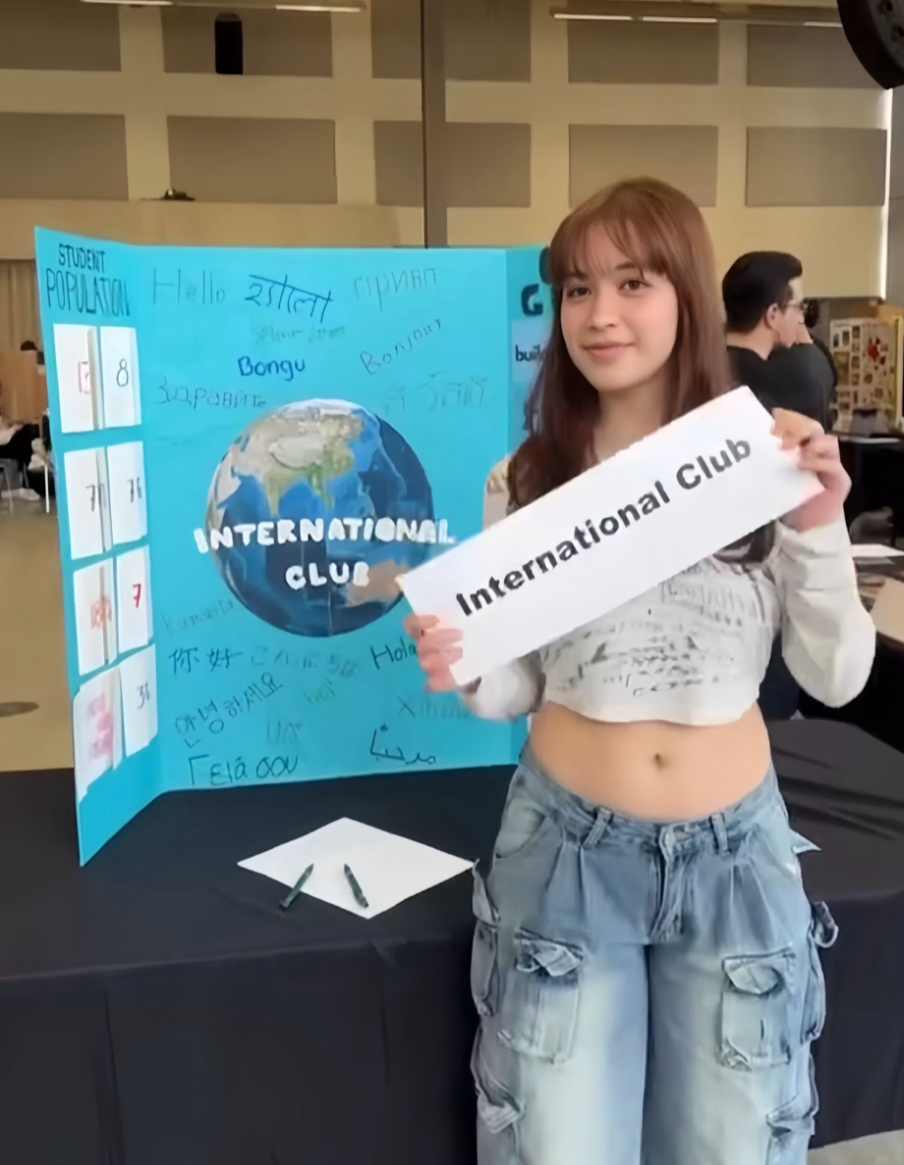Left to Right: panelists James Hong, Thoa Nguyen, Kim Long, moderator Christoph Giebel.
Three panelists of varying ages and situations who came, or were moved, to America because of the Vietnam War spoke in the PUB’s Quiet Dining Room on
Oct. 5. The event was moderated by Christoph Giebel, associate professor of international studies and history at the UW.
Long
Kim Long came to the U.S. in 1975. Giebel said Long “came as a young man with basically nothing. The quintessential refugee.” Giebel said he admires Long’s pride and self sufficiency, especially because he took his first job in the U.S. to pay for college. When he first came to the U.S., Long had nightmares every night about the war. Long is proud to be American and proud to identify himself as Vietnamese.
“In the United States, we are a country of immigrants, of refugees,” he said. After all, the only “real” Americans are Native Americans, Long joked. At his comment, the audience laughed, many people nodding in agreement.
Because of the Vietnam War, only 10 of the original 60 members of Long’s graduating class in high school are still alive. Long has never returned to Vietnam after leaving, but he likes seeing images of it on television. He loves the “beautiful, yellow flowers” there, called mai vàng. Japan has cherry blossoms, Long said, and Vietnam has the yellow flowers.
Currently, Long is the president of the Vietnamese Mutual Assistance Association. His work has focused on bridging the cultural and communication gap between refugee parents and their children born in America.
Long said many young Vietnamese kids he works with tell him they want to be doctors, but when he takes them to hospitals to see doctors during surgery, 50 percent of the time the kids throw up their hands and say
they’re out.
Once, his son asked him why he wanted to identify as Vietnamese. Long told his son he’s glad and proud to be
American, but that he should know his history and where he came from.
Nguyen
Thoa Nguyen came to the U.S. as a young child with her family. They had to wait in Guam for a month, then in Pennsylvania for a month as they waited for a sponsor.
In 1975, her father chose Denver, Colo. for them to settle in. According to Nguyen, her father chose Colorado so they would be “away from Vietnamese as much as possible, that way they (would) learn quicker.” Her father didn’t want their family to stay within their community and not adapt to the new environment. The family’s sponsor showed them where they’d be staying, gave each family member a bag of clothes from Goodwill, and that was the last time they saw their sponsor.
Nguyen’s father was in the Navy and already spoke a little English. He worked three jobs, and Nguyen’s mother worked three jobs. As the eldest child, Nguyen was already cooking for the family at 11 years old. She recalled doing a “mad dash” whenever her parents came home, to clean house at the last minute.
The first six months in America were the hardest for Nguyen. It was difficult for her parents to establish credit — they had none, being new to the country. So they applied for credit cards and maxed them out to pay them off, establishing credit.
Nguyen recalled that she was the slowest in her family to learn English. She noticed that year by year, her family grew away from the image of a refugee. They began to dress differently, more “American.” The way they spoke changed as well.
She found her best friend in sixth grade, and they are still friends today. She would frequently have sleepovers at her place on the weekends as a child. “I feel like I’m American, but I know that I’m rooted in Vietnam,” she said.
When she first returned to Vietnam, she recalled her memory was triggered, as the reminder of her heritage came to her all at once: “Oh my God, I’m Vietnamese!” She feels lucky she can relate to both countries.
“I feel like I’m American. Mostly,” she said.
Nguyen recounted stories she heard from her father, from his childhood, when the Japanese bombed them and the location of their schools changing nightly.
Students would hold chairs over themselves as they ran to school, for protection from debris. She noted that without stories from her parents, she never would have known what they’d been through.
Her own daughter, now in elementary school, was doing a project for her class in which she had to interview her mother, and her daughter was surprised to find out that she was Vietnamese.
Nguyen moved to Seattle in 1991 to support her brother going to school to become a dentist. Her other siblings have since moved to Seattle as well.
Hong
James Hong was born in the U.S. to Vietnamese refugees who settled in California. He considers himself very fortunate to have been born in the U.S. He believes it “made it much easier to adapt and survive here.”
“Learning English, eating pizza, it’s a piece of cake. I ate pizza right before I came here!” he joked, to which laughter rolled through the crowd in the PUB’s Quiet Dining Room. Hong added that he was still trying to get his parents to like pizza. There were disadvantages though, according to Hong. He realized he didn’t look like other children.
“Growing up, it was a huge source of shame for me, knowing my parents were refugees,” he said. Now, Hong draws on the experiences his parents had, as well as his own experiences growing up, to be more compassionate to refugees today. He wants to use those experiences to empathize better. “We’re looking for an easy answer, how to deal with these crises, but there isn’t one,” he said. Hong said, “The idea of Vietnam is abstract. I don’t feel a lot of personal connection to it myself.” Every time he visits Vietnam, he feels more like a tourist, like an outsider. He believes his home is in the U.S. The first time his parents went back was in 2009, and it was jarring — though it was also a relief to connect with old friends.
You
For people going to Vietnam, Hong has advice. According to him, traffic is very different than it is here. Keep walking if you’re crossing the road, and walk in a straight line. Cars and motorcycles go around you; they don’t stop. When getting into a taxi, only get into ones with the driver’s ID face up on the dashboard. If they don’t have that, they’re a fake taxi, and they’ll overcharge you. Giebel, who takes some of his students to Vietnam every two years to study abroad, also advised travellers: “Embrace Vietnam for what it is. The culture, the traffic, the fake taxis.”
This made Hong laugh.
Both Giebel and the panelists urge people to keep in mind that Vietnam is not a war; it is a country with a culture that enriches the lives of people who learn about it. Giebel believes that the panel was particularly timely with immigration so relevant to Americans now. Giebel knows that immigration enriches a country.
—Nellie Ferguson
—Photo courtesy of Shay Malla


